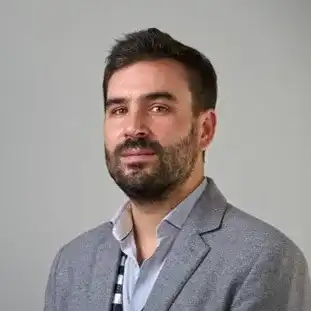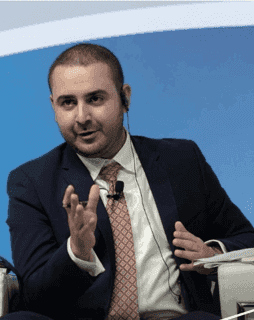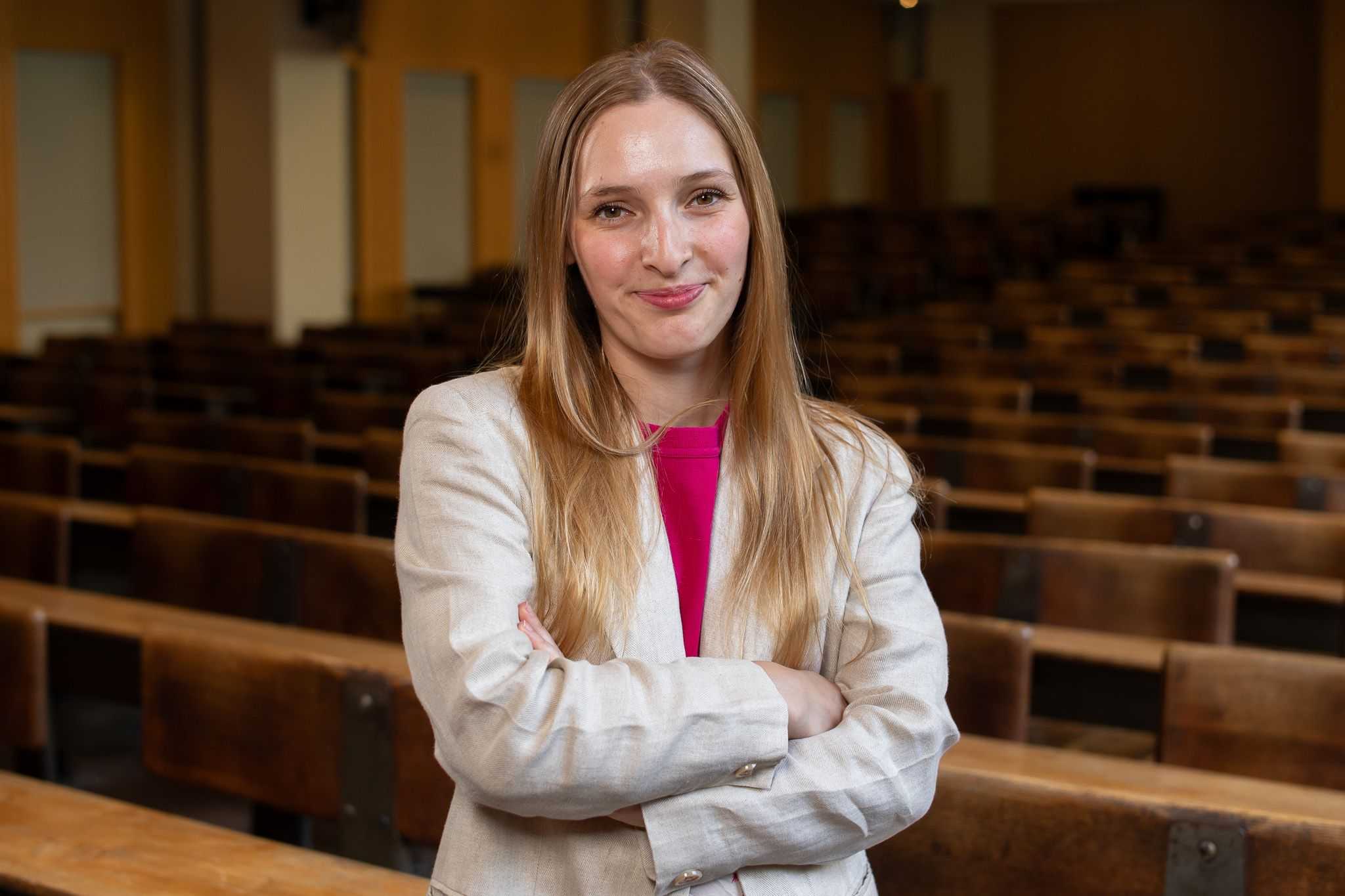
Home>Programmes for individuals>Certificate Programmes>Business and Geopolitics in the Gulf and Broader MENA Region
Business and Geopolitics in the Gulf and Broader MENA Region
Since 2010, countries in the MENA (Middle East and North Africa, incl. Turkey and Iran) region have been undergoing political and economic shifts paving the way to new development models. The Business and Geopolitics in the Gulf and Broader MENA Region executive education certificate programme will equip participants with the skills required to achieve their professional projects and gain insights into the transformations at play. It will specifically focus on the future landscape in this strategic region, Including, but not limited to:
- Understanding the geopolitical and security considerations of the region.
- Adapting to the new economic order and understanding new emerging growth sectors resulting from economic diversification strategies.
- Acquiring the tools and knowledge to launch and run a successful project or business venture.
- Gaining critical insights into the MENA region’s sociocultural and legal context.
This certificate programme is aimed at diplomats, public sector executives and directors of companies and institutions looking to develop their expert knowledge about a region where they work currently or plan to work and gain a specialized understanding of the economic challenges and opportunities. This executive education certificate – delivered by specialists and regional stakeholders recognized in their field, some of whom work in the MENA zone – will also allow participants to master specific practices in the region related to commercial and financial negotiations, project management, and financing/investing.
Overview
Intended Participants
- A director or manager in a private company, public institution, or consulting firm, anywhere in the world and looking to develop your business relations with North Africa and/or the Middle East (including Iran and Turkey).
- A diplomat already posted or to be posted in the region.
- An executive who is seconded to or regularly visits the MENA region for work or professional projects.
- Professionals in sectors like energy (oil, gas, nuclear, and renewable energy…), environment, sustainability, water management, infrastructure (transport, hotels, tourism…), technology, finance, insurance, health, education, culture, leisure or sport.
Objectives
The programme will give the necessary skills and help build a professional network to support formulating and implementing business strategies, projects, and relations in the MENA region. By the end of the programme, professionals will be able to:
- Perform a deep dive into the region’s economic and political situation and challenges.
- Understand the geopolitical shifts and regional security context.
- Formulate and lead strategies for setting up operations and finding investment opportunities in the MENA region.
- Understand and adapt to the prevailing social and cultural environments.
- Apply solid knowledge of diversification strategies and new growth sectors.
- Identify decision-making processes and mechanisms.
- Foster a top-tier professional network and choose the most suitable partners.
- Establish and promote your own position and that of your organization.
Programme
Objective:
Understand the geopolitical and security considerations in the MENA region
Content:
- Geopolitical, socio-political, demographic, cultural and religious characteristics
- Political transitions: current and future transformations
- Regional security and defence challenges
- Relations with Europe, Asia, Africa and the United States: colonial legacy, security and defence cooperation, anti-terrorism, migration flows
- New economic partners, specifically evolving Gulf-Asia-Africa axis – strategic and geo-economic considerations
Objective:
Understand the social, economic, and societal trends of the MENA region
Content:
- Social, economic, and societal transitions in the MENA region
- Diversification strategies, in search of new development models
- Key trends and perspectives (generational revolution, science and technology, green growth)
- Governance: Role of the state and government, fostering public-private dialogue
- Case studies: Saudi Arabia, UAE, Iran, Turkey…
Objective:
Gain critical insights into the MENA region’s business environment
Content:
- An evolving business environment: the legal and regulatory framework
- Risk and opportunity analysis and identification
- Selecting the right partner and run your socials
- Mastering decision-making processes and mechanisms
- Different ways to set up operations
- Fund raising and innovative financing solutions for projects/role of Islamic finance
- Negotiation and networking techniques (practical workshops/simulations)
- Understanding and adapting to the MENA region’s cultural environment
- Intercultural management: hiring and managing local staff
- Interpreting recent commercial successes and failures
Objective:
Understand sectoral dynamics and detect growth opportunities
Content:
- Energy/water
- Infrastructure/transport/major projects
- Financial institutions/investments /role of sovereign wealth funds
- New economy/digital/space
- Health
- Education/culture
- Leisure/tourism
- Green growth
Each sectoral theme will be taught by an expert bringing solid professional experience in the sector.
Teaching Staff

Shamma AlDabbal
Continuing Education, Head of Section at AGDA

Stéphane LACROIX
Associate Professor at Sciences Po

Adel Hamaizia
Managing Director at Highbridge Advisory
Practical Information
- Duration: 10 days
- Format : In-person
- Campus :
- Module 1 in Paris (recommended hotels near Sciences Po Paris Campus)
- Module 2 in Abu Dhabi
- Upon completion of a Sciences Po certificate programme, you'll join the extensive Sciences Po alumni community, and can also become a contributing member to the Sciences Po Alumni Association (without voting rights or eligibility for the Board of Directors).
- Our courses can be adapted to accommodate various accessibility requirements. Please do not hesitate to contact us to discuss any necessary adjustments.
Pedagogical Approach
With this programme, you can continue working while you develop your knowledge and practices through:
Fundamental classes delivered by top-tier academics from Sciences Po’s and AGDA’s teaching body, including:
- Lectures giving you the essential knowledge and skills
- Case studies where you can apply the theory learned to real-life situations
Contributions from professionals from the private and public sectors and civil society as part of:
- Regular coursework during the programme
- Master classes for more focused learning with specialists
Personal support
- From the teaching team
- From a tutor or mentor overseeing your individual executive project as part of an accredited programme.
Admissions Process
- Application review and confirmation of admissibility
- Selected candidates will be invited to attend a selection interview in English. This is an opportunity to check candidates’ command of the language, potential, motivations, professional experience and availability
- Deliberation of the admissions jury
Next Start Date(s)
Contact us
Duration
10 day(s)
cost
Contact us
Contact
Adriana Culotta
Programme Advisor
+ 33 (0)1 45 49 85 94 | adriana.culotta@sciencespo.fr
Contact by email



